Alan Kurdi anniversary: 8 charts that show how the refugee crisis has changed
Numbers arriving in Europe have gone down - but the route is deadlier than ever

Since the death of Alan Kurdi, the three-year-old Syrian boy who washed up on a beach in Turkey one year ago, the call to action from around the world was such that some may have got the impression the refugee crisis in the Mediterranean would greatly improve.
That has not been the case. New figures compiled by the International Organisation for Migration show that more people are dying, in the same way Alan did, than ever before.
Despite EU-led efforts to close off illegal smuggling routes and provide safer methods of migration for refugees fleeing conflict zones in the Middle East and Africa, more people drowned trying to reach Europe in the past year than in the 12 months leading up to Alan’s death.
Worldwide, the Mediterranean crisis accounted for almost three quarters of all recorded deaths along routes of what is termed “irregular” migration - in the majority of cases, people taking great risks to flee persecution and start new lives for their families.
The deadliest migration route in the world - by far
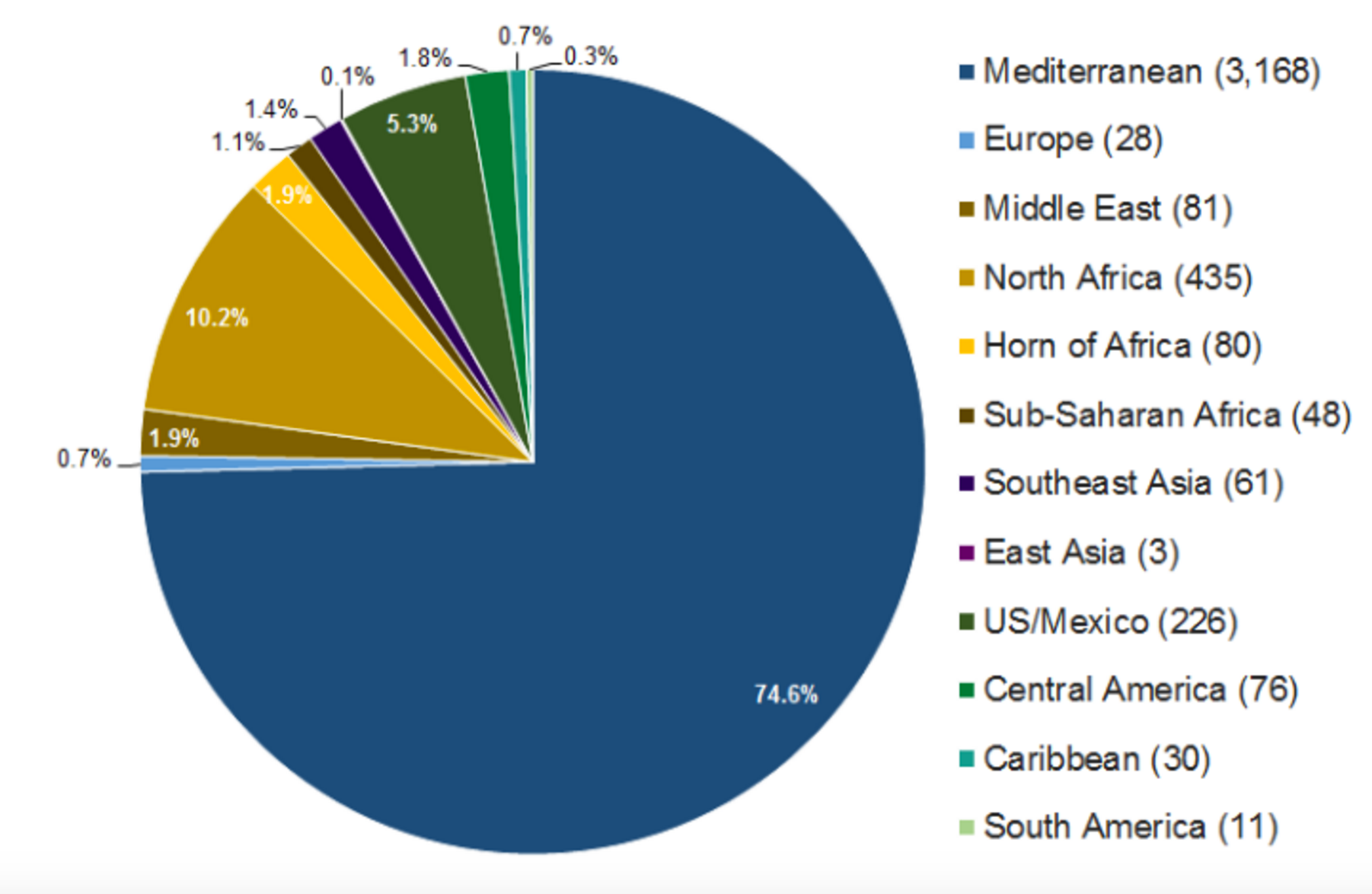
The IOM says that 284,572 people have made the Mediterranean crossing to Europe so far in 2016. At that rate, the EU needs to make 12,990 places available every 11 days.
It is true that the numbers are lower than for the whole of last year - it is unlikely to surpass 1 million arrivals, as happened in 2015.
But the closure of land borders, the EU deal with Turkey to stop boats departing for Greece, and a military-led EU clampdown on smugglers leaving Libya for Italy, appears to have made the route even more dangerous.
That can be seen when we compare the numbers of migrant deaths in 2014-15 to the 12 months since Alan Kurdi died.
4,185 drowned trying to reach Europe in the last year
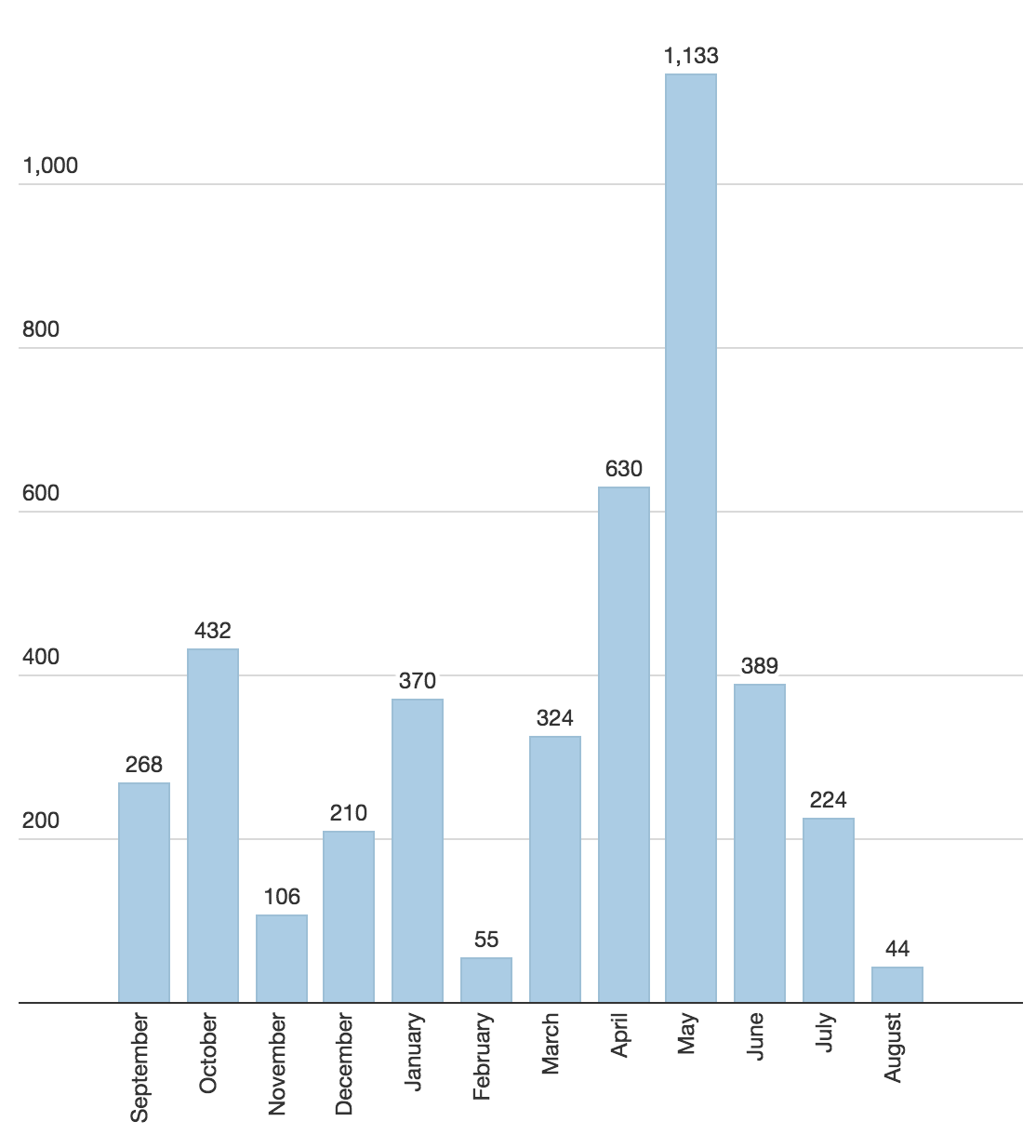
Compared to 3,713 in the year up to Alan Kurdi's death
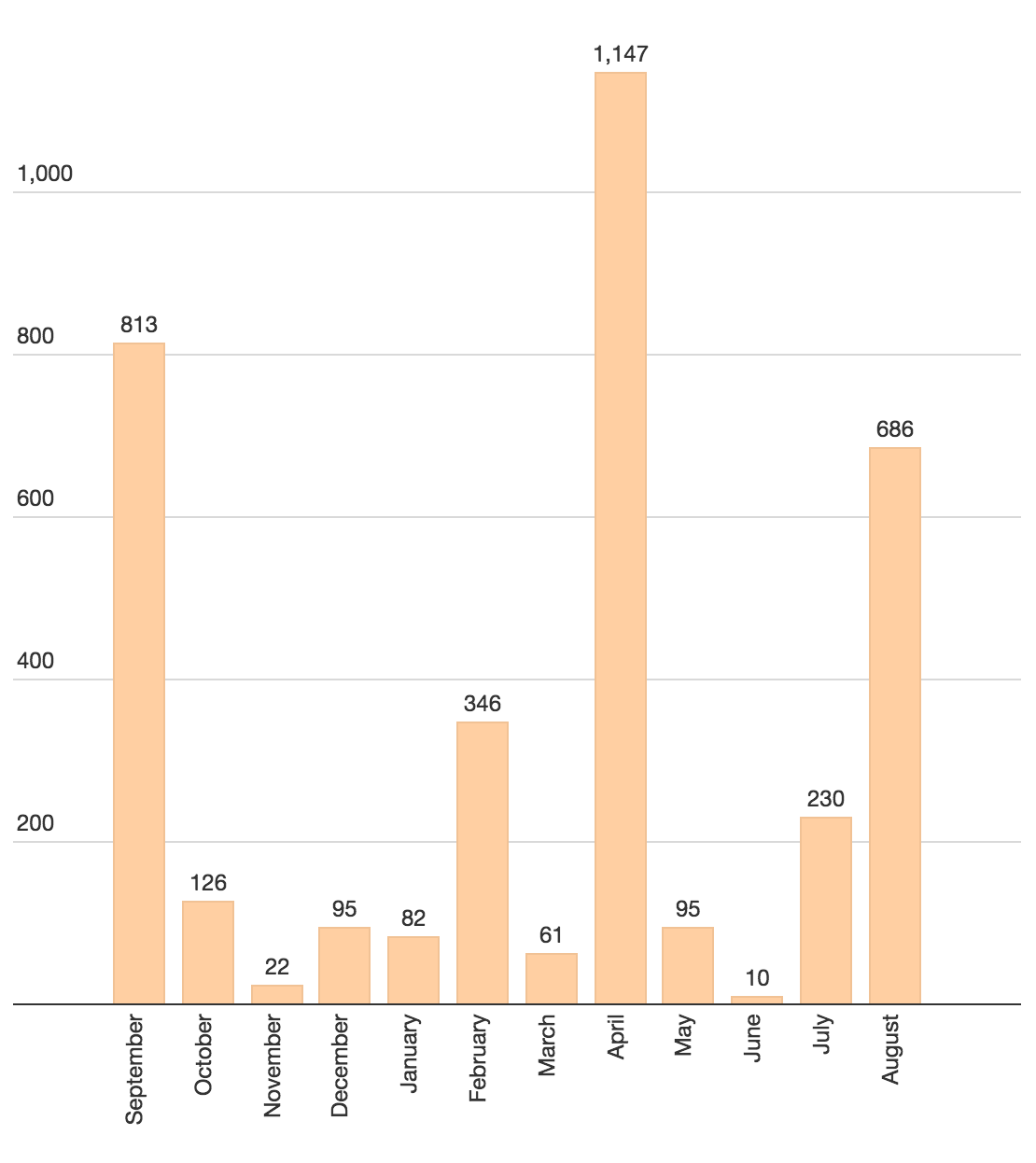
In 2015, the Mediterranean accounted for only 65 per cent of deaths - in 2014, a lower proportion still at 62 per cent.
According to IOM, refugee deaths across the world as a whole jumped remarkably year on year, from 4664 between 2014 and 2015 to more than 5700 in the last year.
Refugee deaths up more than 1,000
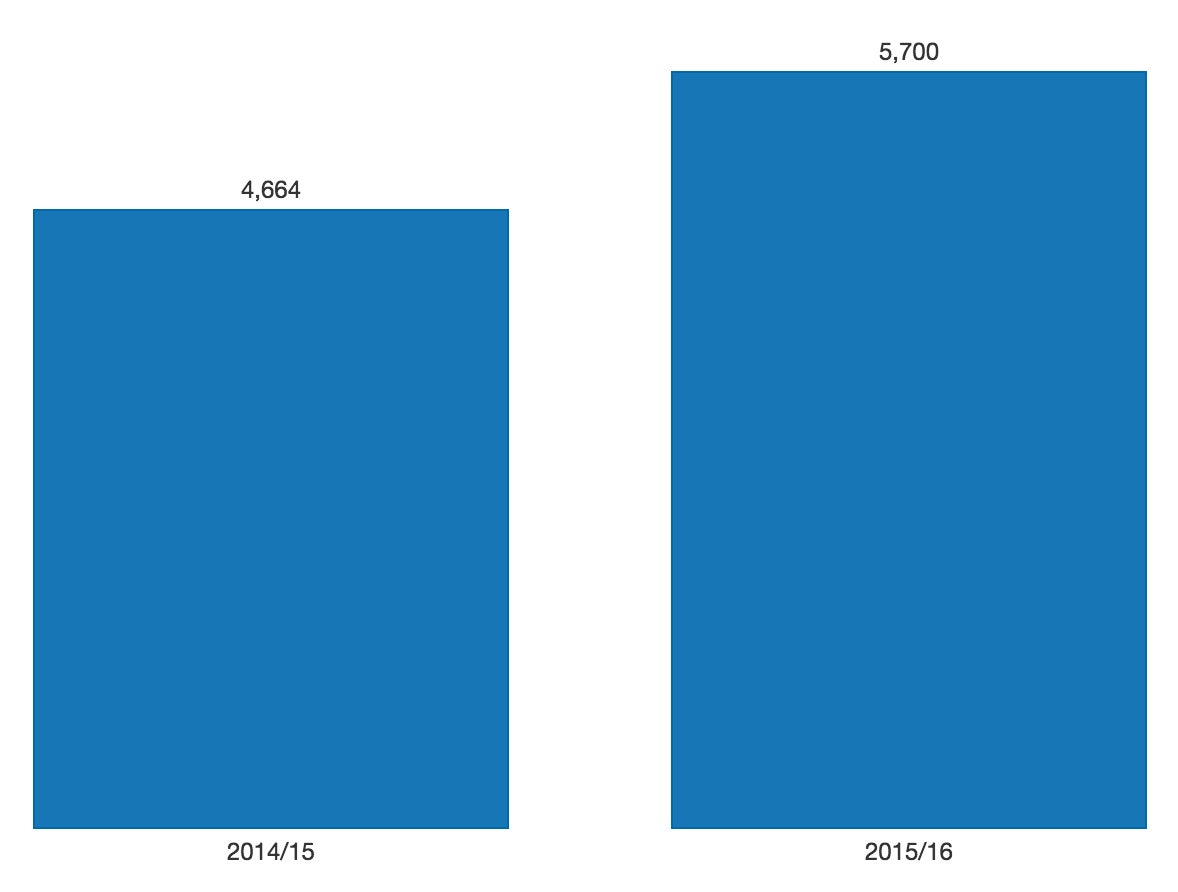
The death of Alan Kurdi and the Syrian civil war raging on Europe’s doorstep tend to draw attention to the immediate crisis of those making the journey across the Mediterranean.
But UN figures show the world is facing a global deterioration in the outlook for refugees and internally displaced people.
A global crisis
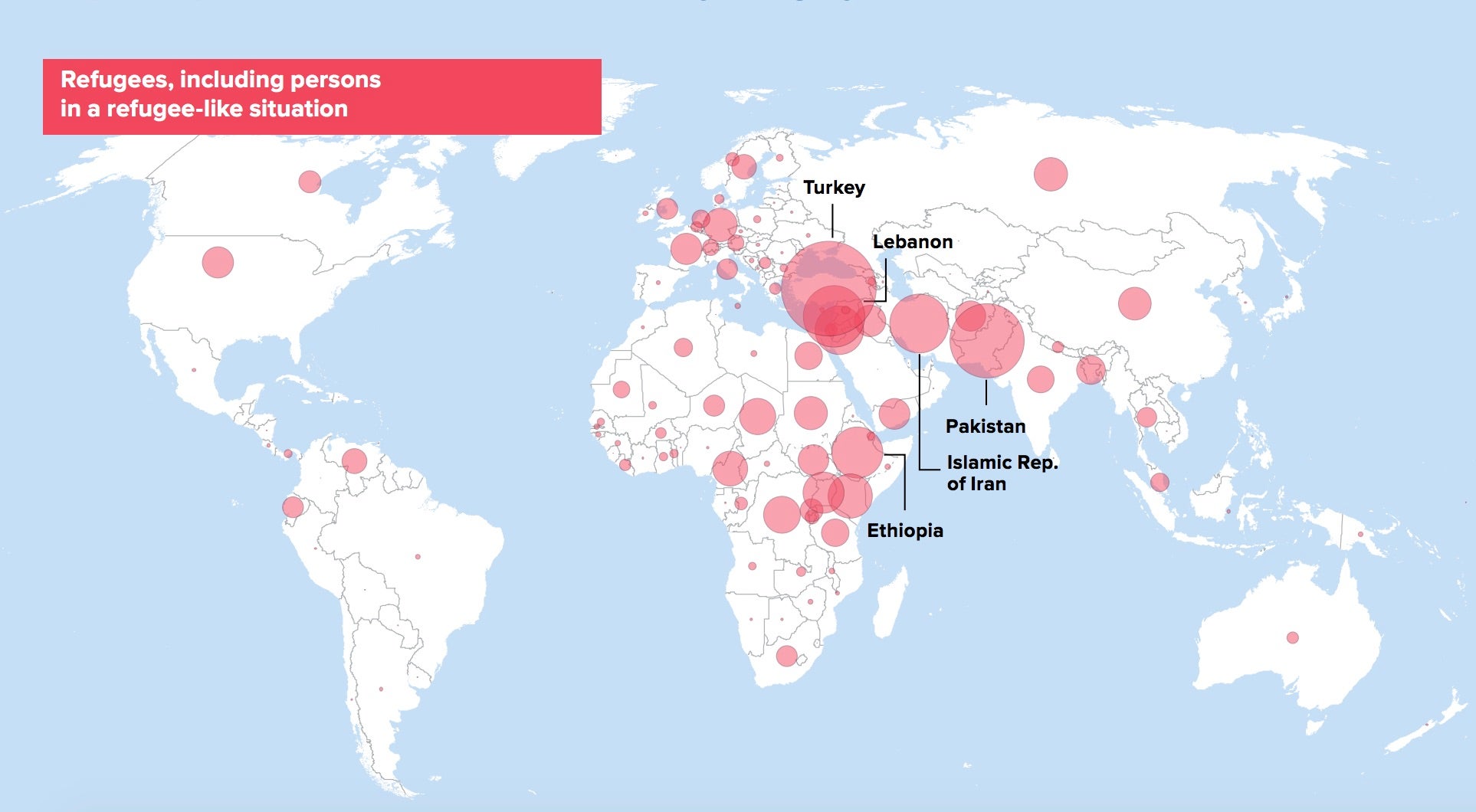
The latest annual report produced by the UN refugee agency, the UNHCR, found that there are now more refugees, asylum-seekers and displaced people in the world than at any time since records began - possibly since the end of the Second World War.
They number 65.3 million, getting close to 1 per cent of the total population of the world. If there was a country made up of all the citizens who have been displaced by conflict, it would be the 21st most populous in the world.
Refugee numbers at greatest level since records began
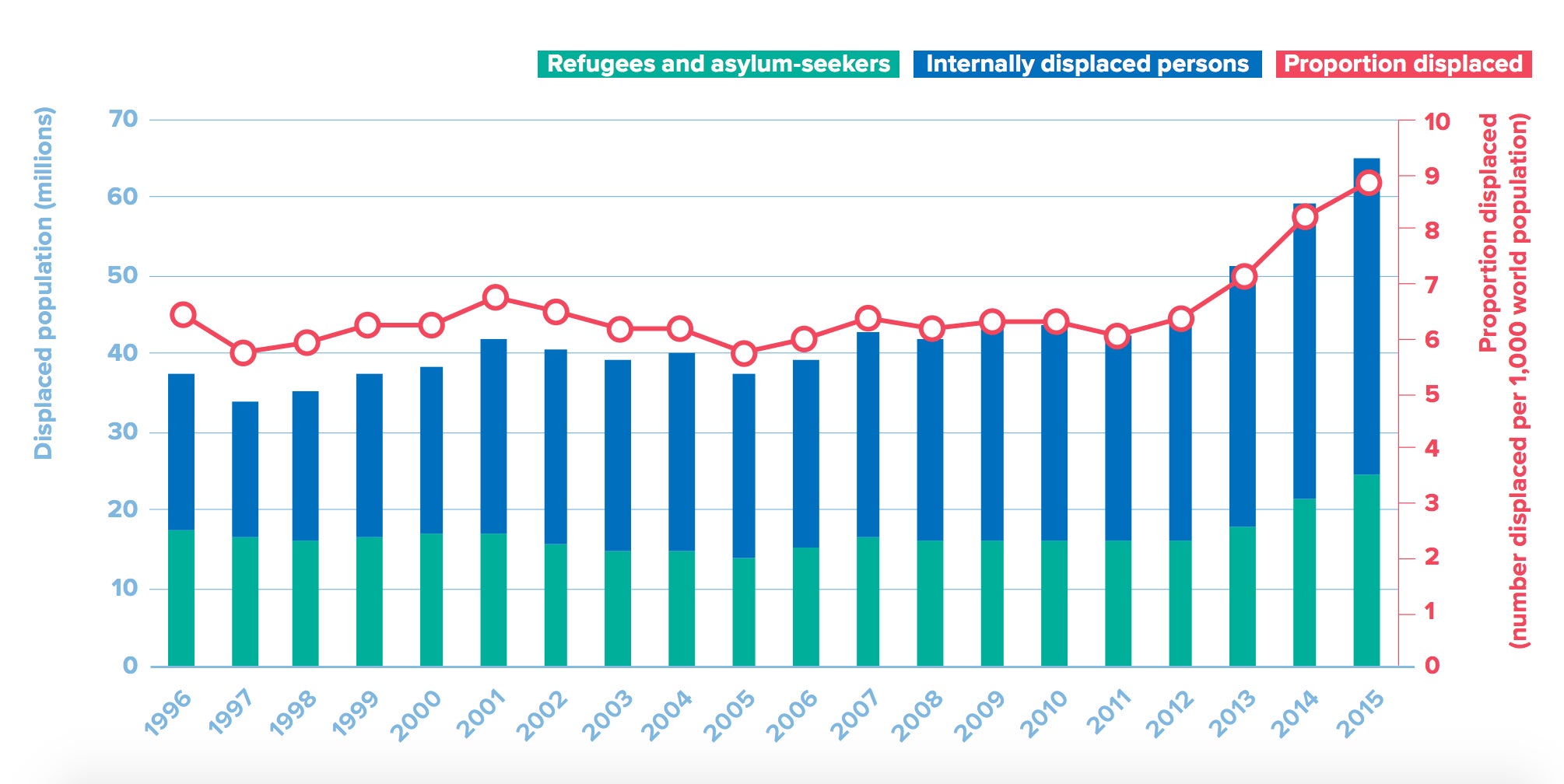
In Europe, it is now clear that the huge call for action that followed Alan Kurdi’s death has produced little in terms of concrete results.
At the peak of the political will to solve the crisis, the EU agreed to make 160,000 places available for refugees landing in Greece and Italy.
Of those, just 12,990 have been made available across 24 contributing member states.
EU commitments fall far short of target
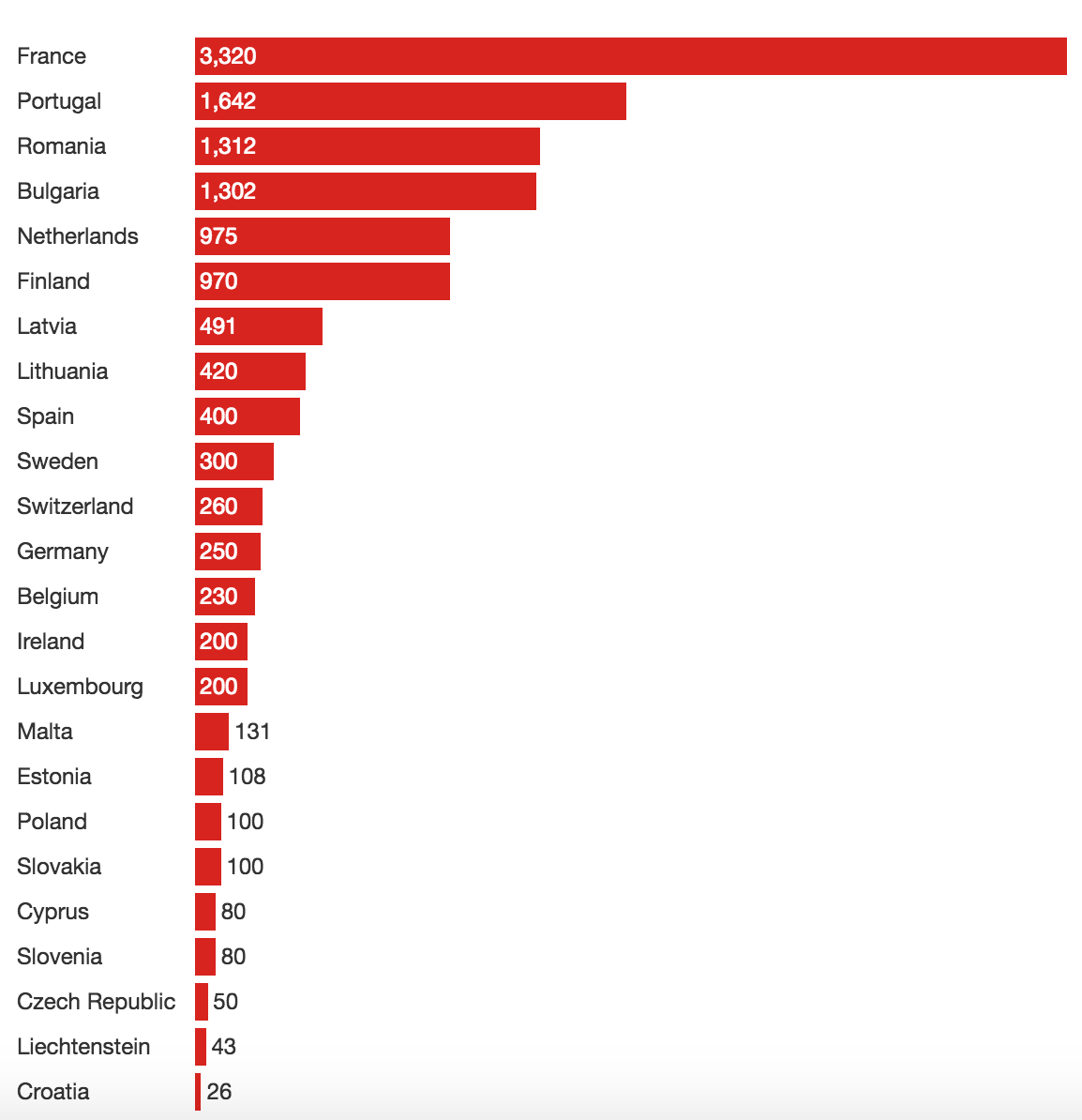
While it may not have led to a huge political undertaking, the death of Alan Kurdi did lead to a demonstrable outpouring of public anger and grief.
At the University of Sheffield’s Visual Social Media Lab, researchers have been monitoring social media mentions of the terms “refugee” and “migrant” in the year since Alan was found on 2 September 2015.
They found there were four times as many tweets referring to the issue of the refugee crisis as there were in the year before, spiking as #refugeeswelcome trended globally in the days few days after the boy’s death made front pages around the world.
Visual Social Media Lab, conducting the study in partnership with Oxfam, found that the recent images of Omran Daqneesh, a Syrian child pictured bloodied and covered in dust after being pulled from the rubble in Aleppo, had a similar effect.
All talk, no action?
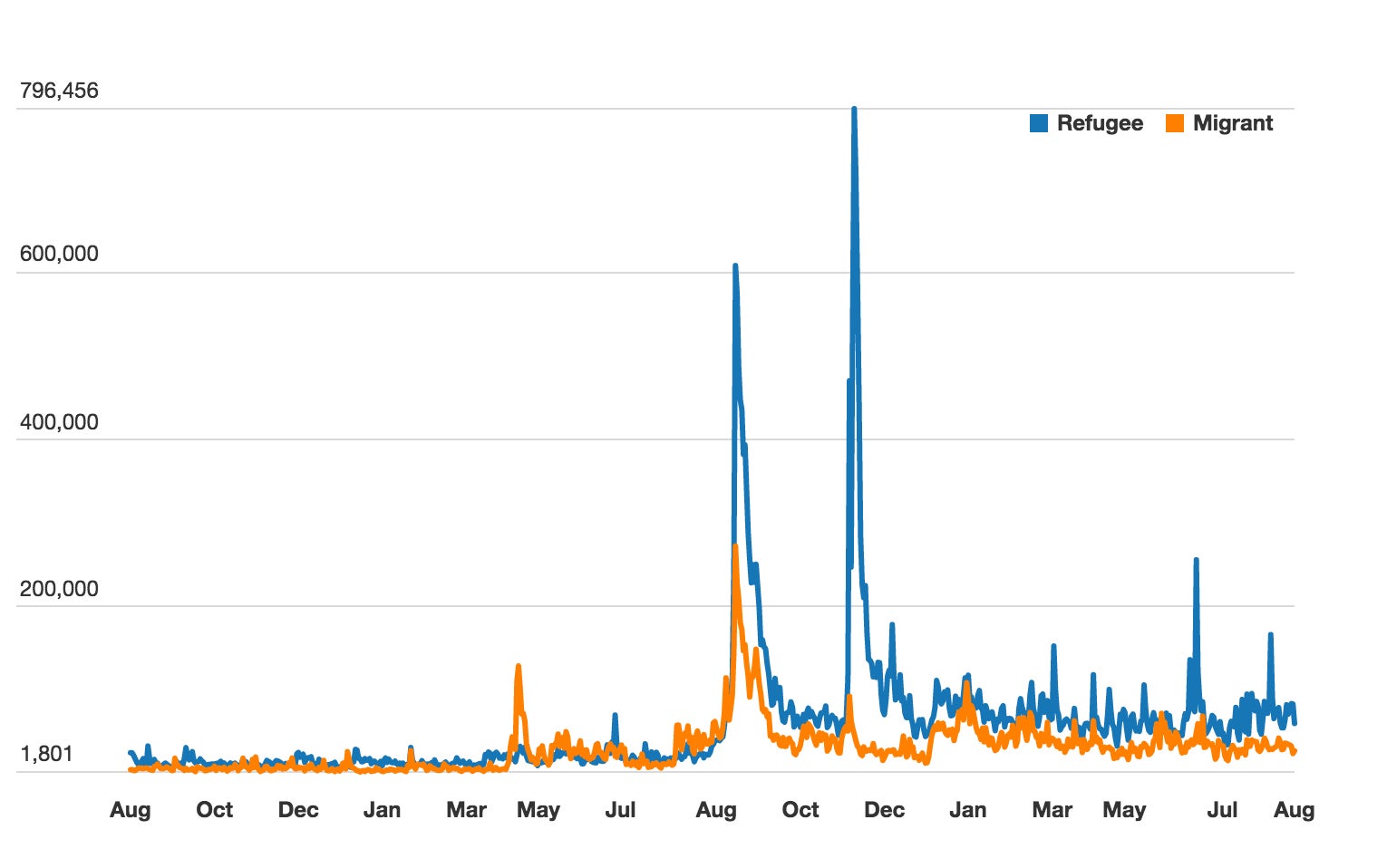
Visual Social Media Lab’s Francesco D’Orazio said: “Our analysis shows a huge increase in awareness about the refugee crisis following Alan Kurdi's death. More people are discussing the issues on social media and searching for information and news on Google.
Yet increased awareness of the crisis has not led to increased political will to solve it.
Two major summits on refugees are due to take place in New York this month, but Oxfam says the preliminary negotiations have been disappointing.
It called on all governments to do more to end the crisis, including in the UK, which responded to The Independent’s campaign after Alan Kurdi’s death by offering to rehome 20,000 Syrian refugees. So far, just 1,602 of those places have been filled.
Mark Goldring, Oxfam GB’s chief executive, said: “The images of Alan Kurdi’s body washed up on a Turkish beach were heartbreaking and the public was rightly shocked and saddened by them.
“And yet in the year since, the situation has not improved for refugees and migrants who are risking everything in search of safety and a better life for their families. In fact, the routes they take have become deadlier still.
“To stop these needless deaths, we need a coordinated, global response to this crisis. The UK government has an opportunity to show it is part of the solution at the summits in New York later this month.”
Join our commenting forum
Join thought-provoking conversations, follow other Independent readers and see their replies
Comments